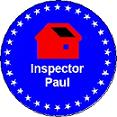|
|
 |
|
|
 |
 |
Molds in the Environment
What is the public health problem?
Molds are simple organisms that are found virtually everywhere, indoors and outdoors. The potential health
effects of indoor mold are a growing concern. Mold can cause or worsen certain illnesses (e.g., some allergic and occupation-related
diseases and infections in health care settings). There is not conclusive evidence, however, about whether indoor mold is
associated with a multitude of other health problems, such as pulmonary hemorrhage, memory loss, and lack of energy.
What has CDC accomplished?
- CDC’s Mold Web site (http://www.cdc.gov/nceh/airpollution/mold) provides information on molds and health and links to resources. In conjunction with the Council of State and Territorial
Epidemiologists, CDC has created an inventory of state indoor air quality programs, which is available at http://www.cdc.gov/nceh/airpollution/indoor_air.htm.
- CDC assists states in responding to mold-related issues, including offering technical assistance with assessment, cleanup
efforts, and prevention of further mold growth and unnecessary exposure.
- CDC is strengthening state, local, and tribal capacity to respond to mold-related issues, including (1) determining the
extent to which state programs establish coordinated responses to indoor mold exposures; (2) working with federal and other
organizations to coordinate plans related to indoor air and mold; (3) developing a coordinated public response strategy; and
(4) identifying resources for developing and implementing responses.
- CDC is developing an agenda for research, service, and education related to mold. As a first step, CDC contracted with
the Institute of Medicine (IOM) to conduct a study on the relationship between damp or moldy indoor environments and the manifestation
of adverse health effects and to provide recommendations for future research. CDC’s mold-related agenda is expected
to address subjects such as the following:
- Characterizing environmental conditions that allow mold growth indoors and the association between indoor mold and disease
or illness;
- Improving the capacity of state, local, and tribal health departments to prevent, investigate, and control mold exposures;
- Conducting and supporting research to define the association between damp or moldy indoor environments and harmful health
effects.
What are the next steps?
CDC will continue to assist states and others in responding to mold issues and develop an agenda for research,
service, and education related to mold as described above.
For more information, visit http://www.cdc.gov/nceh/airpollution/mold. | |
Call For More Information: Paul
King - 704-579-6902 or Chris Taylor - 704-264-9338 Charlotte Mold Remediation & Building Sanitizing 201 Tom Hall St. # 236 Fort Mill, SC 29715
|
 |
|
|
 |
|
|
 |
|
|
|
Copyright 2000-2005 - King Contruction, Inc dba Charlotte Mold Remediation
Charlotte North Carolina and York County, SC's Leading Mold Remediation Company
 Charlotte Professional Home and Mold Inspection - NC & SC
licensed home inspector, general contractor, certified mold radon pool & stucco inspection, ASHI certified member, PAHI president,
serving the Charlotte, NC and Fort Mill, SC areas with professional, honest, and detailed inspections. Charlotte Professional Home and Mold Inspection - NC & SC
licensed home inspector, general contractor, certified mold radon pool & stucco inspection, ASHI certified member, PAHI president,
serving the Charlotte, NC and Fort Mill, SC areas with professional, honest, and detailed inspections.
|
|
|
 |

